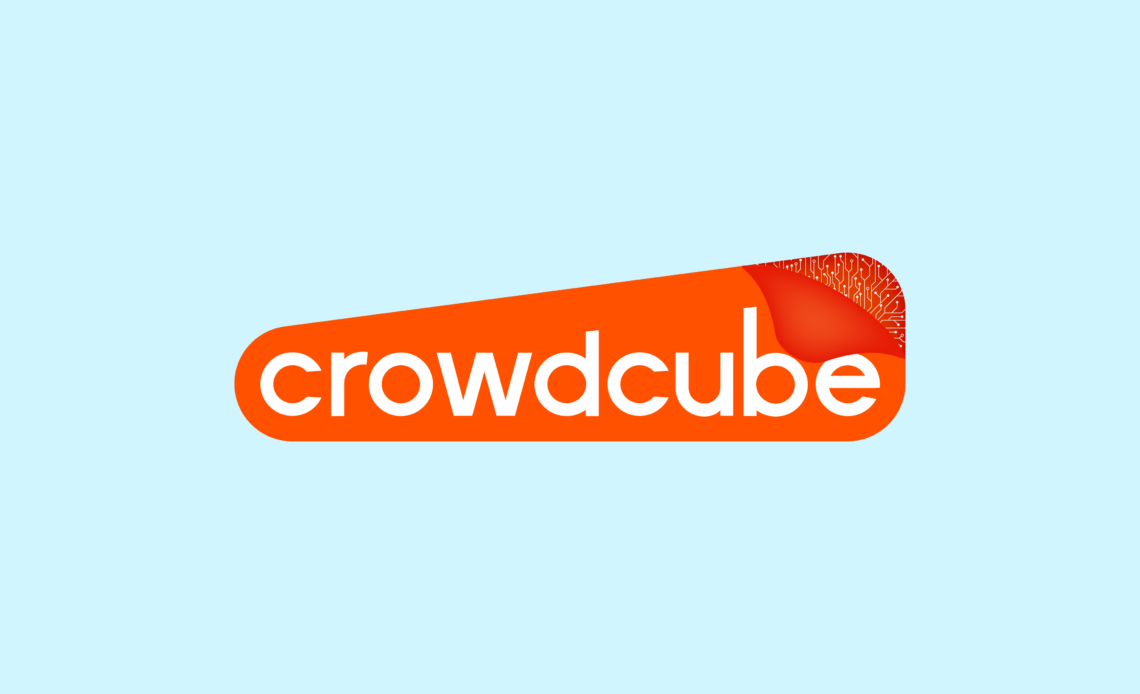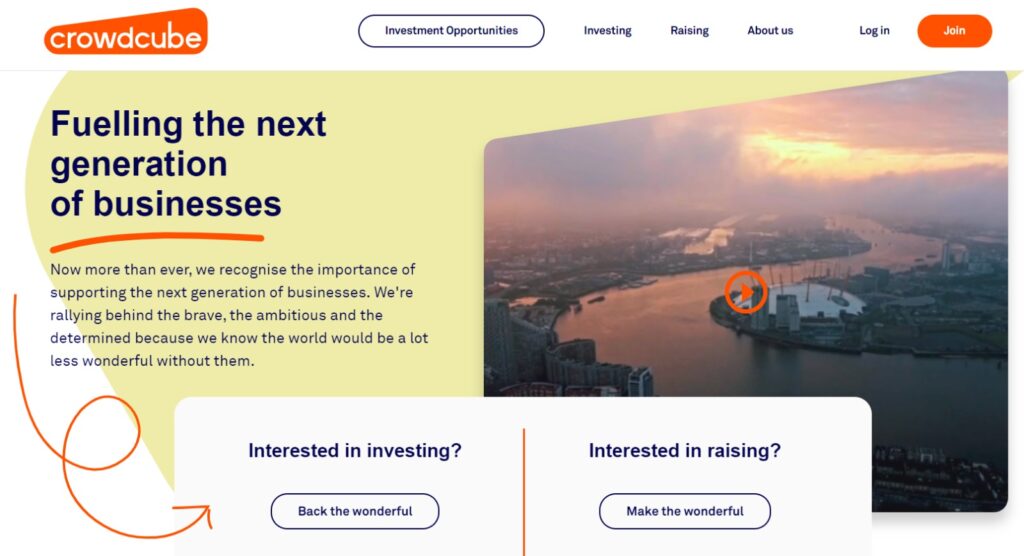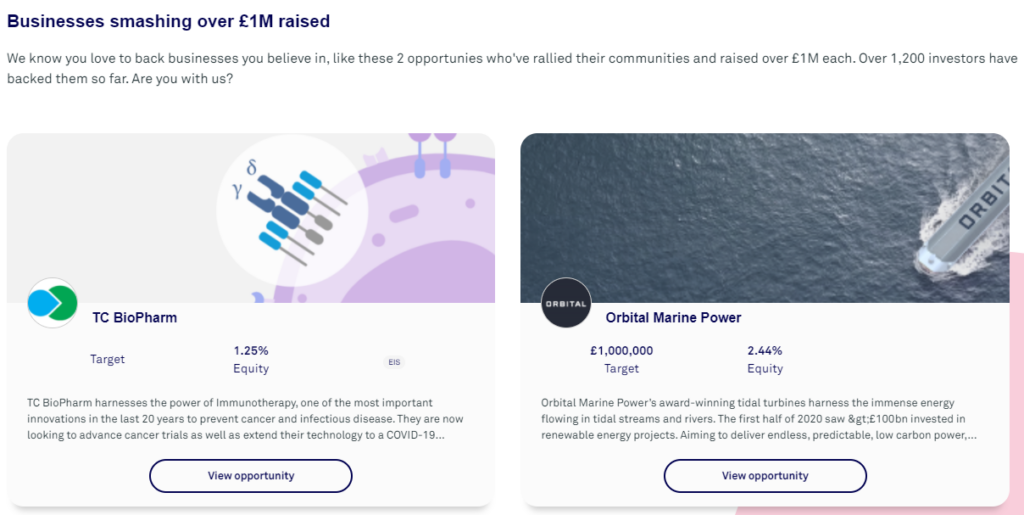
In the past, investing in startups in the early stage was something mostly for rich people. Unless you had the right contacts and knew your way around secondary markets, you were pretty much out of luck.
Thanks to the internet though, investing in early-stage businesses is open to the common man. Crowdfunding platforms give businesses a way to raise third party funds to get some start-up capital.
Crowdfunding inverts the traditional business funding model by opening up early-stage funding to a wide range of friends, family, and individual investors.
Crowdcube is an online equity crowdfunding platform that lets the average Joe invest in new private companies. Business owners can pitch their projects on Crowdcube, and investors can give them money to secure some equity.

Crowdfunding has become a popular revenue generation method for lots of things and it’s only natural it has extended to the equity market.
But the question remains, how good is Crowdcube? Is it a good place for investors to secure some equity and earn money? Do the invested funds have a good chance of making returns?
We will answer those questions and more in this Crowdcube review.
Also consider checking out…
- Our Seedrs Review
- Our Roundup Of The Best Crowdfunding Platforms In The UK
- How Does Crowdfunding Work?
What Is Crowdcube?
Crowdcube is an online equity crowdfunding platform that was first launched in 2011.
Since its initial launch nearly 10 years ago, Crowdcube has raised millions of pounds for UK-based businesses and given countless investors a chance to get a foot in the door on early-stage business opportunities.
Crowdcube’s main claim to fame is how it makes early-stage investing open to the average person. Investors can get started investing as little as £10 to claim some equity in a private business.
This means that owners are entitled to the profits that the business generates in the future.
You can think of Crowdcube as an investment-focused version of Kickstarter.
The key difference is that when you contribute to a project, you get a cut of equity in the company if the fundraising project is successful.
Crowdcube also has some good marketing features so that business owners can push their projects and build up their network.
For example, Crowdcube has a lot of integrations with social media which is a fertile ground for marketing strategies.
Crowdcube has also made headlines recently thanks to their recently announced merger with Seedrs, another popular equity crowdfunding platform in the UK. Crowdcube and Seedrs plan to merge in early 2021 and the merger is expected to have a total merged value of $140 million.
Crowdcube has had a fairly successful history in the 10 years it has been around. Famous firms such as Camden Town Brewery and E-Cat Club got started on Crowdcube and were eventually acquired for a lot of money, which translated into a lot of profit for the equity stakeholders.
How Does Crowdcube Work?
For Investors
Crowdfund has a pretty simple model. When you make an account, you can browse the marketplace and look for neat projects that catch your interest.
The kinds of projects on Crowdcube run the gamut across several industries, including tech, real estate, food service, industrial firms, and much more.
When you find a project that you are interested in, you can click on it and you will be taken to the pitch page where you can look at things like the company’s business plan, market forecasts, and other key pieces of information.
Pitches also have videos where they present their methods and projected models about business performance.
When you find a project that looks interesting, you can invest the specified minimum amount or more, and then you will have a claim to equity if the company reaches the earnings goal in the specified time frame.
If the project does not meet the fundraising goal, then you get your money back in full. So, you won’t actually be paying anything unless the projects that you invest in meet their earnings goals.
In general, Crowdcube has two basic models that investors can put their money in: Joint-venture profit share models (equity models) and fixed income models (bonds).
In the first category, it’s a lot like traditional investments. You essentially pay to own shares in the company and will benefit from any returns on the company’s valuation in proportion to how many shares you own.

With the fixed income model, you are basically loaning an amount to companies with the promise to be paid back in fixed amounts, plus interest, by a specific date.
If you have ever invested in the corporate bonds market, the fixed income model is basically that but just in crowdfunding form.
As of the time of writing, the average interest on fixed-income investments is 7% per year. As you might expect, this option has less risk than the equity model but not as great a potential for returns.
One key thing to keep in mind is that, unlike normal private markets, you cannot sell the shares that you invested in and you can’t buy shares from already closed pitches.
You can only invest in a company while the pitch time frame is open.
So, if you invest in a company, you have to wait and see if the pitch reaches its goal and the project closes before you can expect to start making money or sell your shares in a market if you want to.
For Businesses
If you want to raise money using Crowdcube, then you will have to draw up a campaign plan and present it to Crowdcube. Once they approve your project and make sure that your details are fair and accurate, they will open it up to investors.
Crowdcube has three major “tiers” that businesses can choose based on how much money they need to raise.
The Seed Finance tier is for projects with earnings goals between £50,000-£249,000.
The Early tier is for businesses that have already been seeded but need some extra capital to grow and are for earnings goals between £250,000-£750,000.
Lastly, the Growth tier is for companies that want more money to expand their operations and is for earnings goals of £751,000+
One of the best things for companies that Crowdcube offers is secondary liquidity for later-stage companies. This feature gives public backers some liquidity with their investments without the hassle of having to go through a traditional public IPO.
Crowdcube has had some crowdfunding successes. For example, Monzo raised more than £24 million on the platform from over 35,000 investors, while Chip raised £4.7 million from nearly 10,000 investors.
Before you apply to get funding, you will first have to meet some requirements.
Your company must be a UK or Irish limited company and there are certain industries that are barred from participating, such as companies of a sexual nature, property development, or theatrical productions. You also must have a valid active Companies House number,
Crowdcube will also take a look at the structure of your company and any existing shareholder relationships that you have. Once they review and approve your company, they will put it on the marketplace to accept investments.
When you open a pitch with Crowdcube, the company will use a data-driven approach to provide you with real-time data about how your company is faring.
It will also tell which marketing channels are doing the best at driving traffic to your project. So in a lot of ways, Crowdcube is both a crowdfunding platform and a quasi-marketing platform.
Crowdcube also does not charge any active listing or maintenance fees for listed projects. The only fee they charge is a 7.5% fee on the profits gained from the shares after the earnings goal is met and the project time frame closes.
What Kind of Return on Investment Can I Expect?
As is the case with any early-stage investing, investing in projects on Crowdcube is inherently risky.
However, with that risk comes the prospect of ample returns. A study performed by Nesta done on angel investors found that the average return across a diversified portfolio was 2.2 times the average market return.
It is important to keep in mind that the majority of these returns were generated by a relative minority of companies.
Some of the major risks of investing in early-stage startups are the relative lack of liquidity, lack of dividends, and loss of momentum. It is a trend we have seen a lot; a company pitches for seed money, picks up a lot of traction, but ultimately disappoints and does not last very long.
Even if a company does well in its early stages and builds up a lot of buzz, that is no guarantee that they can keep that momentum going.
If you are going to invest on Crowdcube, then make sure that you properly diversify your funds across a range of industries. This principle is the exact same as investing in traditional stock exchanges.
Is Crowdfund Safe? Is It Legit?
Yes, Crowdfund is a safe and legitimate platform. They are regulated by the Financial Conduct Authority (FCA).
They also take great pains to verify the companies that use the platform to raise funds. They make sure that pitches have all the relevant information and that the business has a legitimate legal structure.
On top of this, they also perform conduct checks on business owners to figure out and negative details that may affect investor confidence.
Crowdcube Pros & Cons
Pros
- Makes investing easy. Crowdcube is a great platform for the average investor to get in on the ground floor before the company takes off. What was once the purview of rich investors is not open to regular people.
- Tax benefits. Most projects on Crowdcube are eligible for SEIS tax advantages such as rebates and deductions on income taxes. You can read more about these tax advantages on Crowdcube’s website.
- Good market coverage. Aside from a few industries. That can’t participate, you can find a wide range of businesses to invest in. With the upcoming merger of Seedrs, there will be even more market coverage.
- Help out small businesses. With Crowdcube, you can also feel good that you are helping small businesses succeed and grow.
Cons
- High risk. Early-stage investing is inherently risky and there is no guarantee of a return.
- Fees. Crowdcube charges investors fees at the point of investment rather than at the point of exit.
Conclusions
So is Crowdcube a good experience for investing? We say yes.
Crowdcube is a good secondary market for investment opportunities and makes you able to invest in raising capital funding with ample information. It’s a good experience for those in the crowd who want a good offer on helping businesses in an authorised and regulated platform.
Reviews of Crowdcube capital are positive and the average investor can get a lot of returns via Crowdcube.
- The 9 Best UK Money Management Apps (2025) – for individuals and couples - August 8, 2024
- What Salary Should You Be Making At Your Age? (UK Guide) - August 8, 2024
- The Top 10 Most Ethical Banks in the UK: A Comprehensive Review for 2025 - August 8, 2024

1 Comment